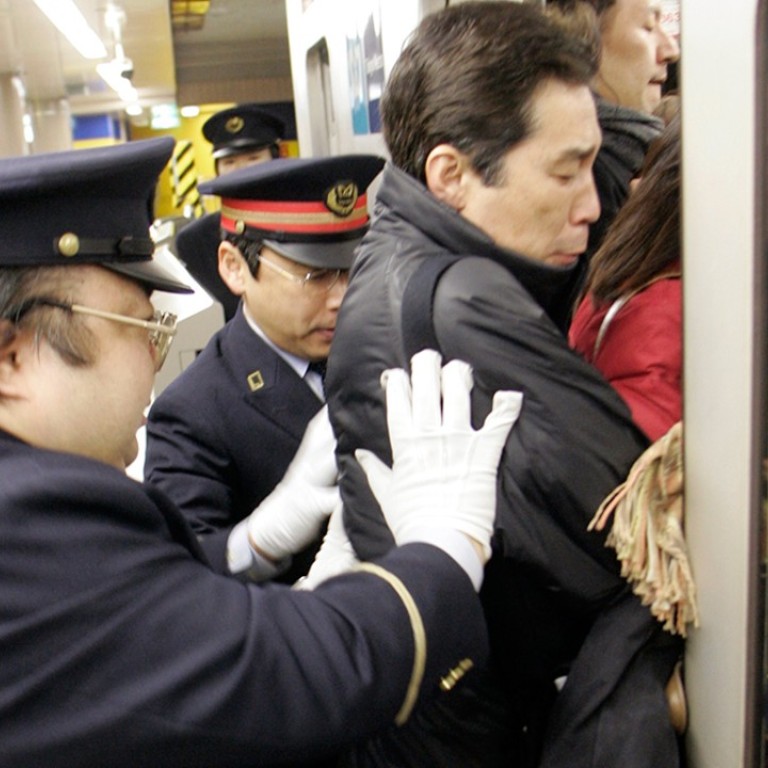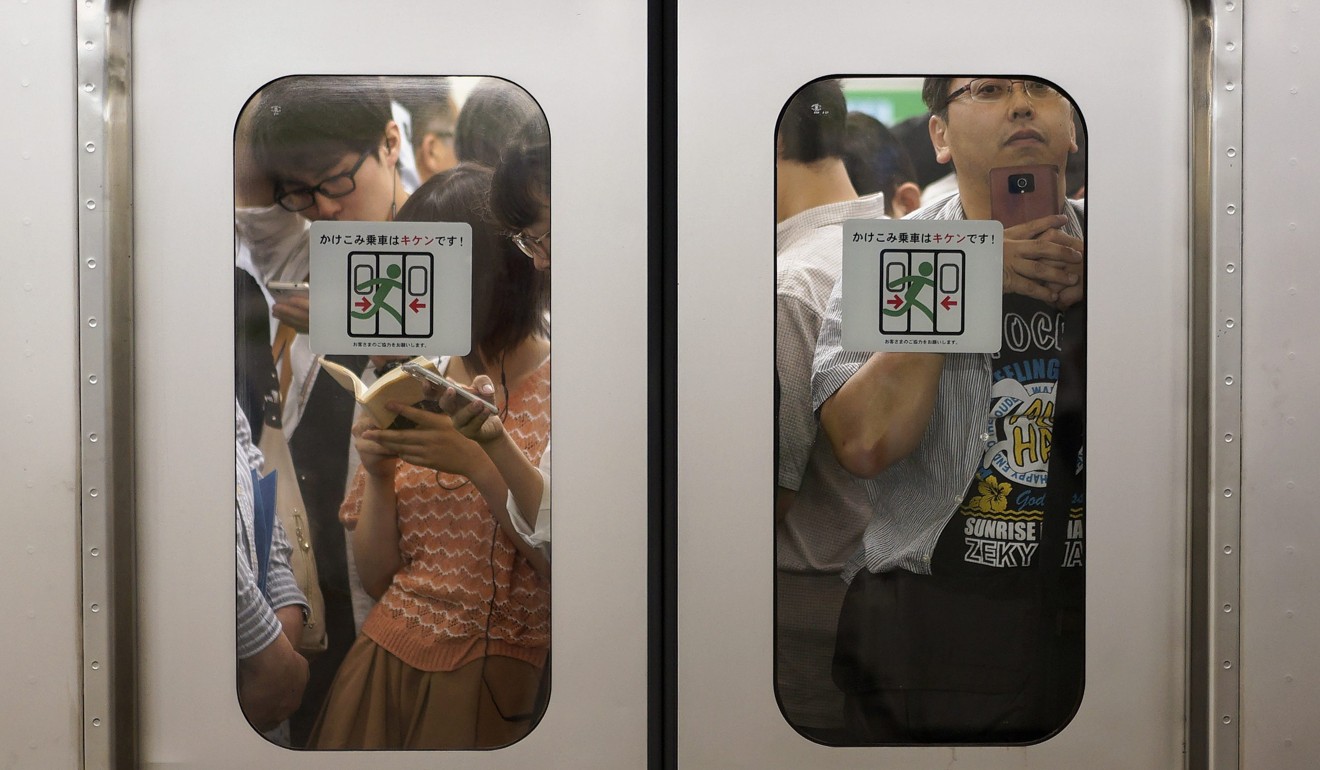
Japan’s famously polite train commuters lose their cool sometimes. There were 825 attacks last year
More than 60 per cent of reported attacks last year involved people who were drunk
Issei Izawa only started university in April, but he already dreads a daily two-hour commute to and from Tokyo that has long been notorious for congestion and discomfort.
To add to those problems, he has been shocked at the violence that appears to have become a daily occurrence.
“I was expecting the trains to be busy and that is unpleasant enough, but I was not ready for the arguments that I have seen,” he said.
“The mornings are not so bad, but something seems to happen every day when I am coming home late at night or after finishing my part-time job.
“Often it is two drunk people pushing each other around on the platform – which can be dangerous – but I also see the station staff being targeted when they try to step in.”
Japan’s commuters have long had a reputation for placidly putting up with their lot on the way to and from work, but new statistics from the transport ministry make sobering reading.
In the year that ended on April 1, there were no fewer than 825 attacks on train or station staff across Japan, above the 800 threshold for a fourth consecutive year.

And that figure almost certainly fails to reflect the real scale of the problem, the Yomiuri newspaper reported, because many railway company employees prefer to shrug off a confrontation with an irate passenger because involving the authorities would delay trains and cause inconvenience to potentially thousands of customers.
In April last year, an officer with the Osaka Prefectural Police was arrested for allegedly assaulting an employee of West Japan Railway after losing his temper over a delayed train.
At 6:30am on a Sunday morning, Masashi Nouno allegedly grabbed the worker by his uniform at a ticket gate and dragged him around Aboshi Station.
Nouno admitted seizing the station employee after becoming agitated over a late train but denied assaulting him.
In May this year, a 65-year-old man died after being in a coma for a week. Eiji Tsuchiya had been an argument with another passenger on a station platform in Tokyo, the altercation ending with his head being pushed against a moving train, fracturing his skull.
Dai Kyo, a Chinese chef who works in the Okubo district, has been charged with inflicting an injury resulting in death.
Japanese authorities first began compiling statistics of violence directed against railway staff in 2013, with 231 incidents reported in the first year. That figure has since soared, reaching a high of 887 cases in 2014.
Most incidents each year occur in major urban areas, with 264 reported in Tokyo and 65 in Osaka. And more than 60 per cent involved people who were drunk.
Railway operators have been looking for ways in which to protect their staff and to keep trains running to their timetables, with some companies issuing employees with clip-on ties that come off easily in a scuffle and installing emergency buttons at ticket gates to summon additional staff in the event of a problem.

